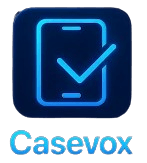Is Debt Direct Portfolio Management Harassing you❓
Is Debt Direct Portfolio Management LLC Harassing you? Debt collectors employ various tactics in their debt pursuits. Some of these tactics are lawful while some are unlawful and unfair to the consumer. Most times, debt collectors are only interested and concerned about getting money from you and not your comfort or peace, so, they do not mind making numerous calls to your phone and intimidating you with abusive words. They can even go as far as calling and harassing your friends and family about alleged consumer debt, often suggesting debt settlement or credit counseling. If you are experiencing any of the above, it is not peculiar to you. Many people have and are experiencing the same dilemma. You might also consider requesting debt validation to ensure the debt is legitimate.
Although debt collectors are legal agencies who have the job of pursuing debts, they are not untouchable or unstoppable. When a debt collector goes too far, they can be stopped. Debt collectors who harass and threaten debtors are violating the FDCPA and thus should not be tolerated.
You have the option of writing to the collection agency, asking them not to call you anymore by sending a cease and desist letter, except it is to notify you of impending legal action.
It is important to understand the role of the original creditor, who is the entity that initially extended the credit and may attempt to collect on debts before the account is turned over to a collection agency.
Furthermore, if a debt collector lies to you about anything, be it their identity, the amount of the debt, or the interest rate, it is also a violation of the laws laid down for the protection of your consumer rights. Violating the FDCPA has implications, and we can help you bring an end to Debt Direct Portfolio Management LLC harassment you are experiencing. Call us now at 877-700-5790.
Who is Debt Direct Portfolio Management Company?
Debt Direct Portfolio Management is a debt buyer/debt collector located in Buffalo, New York. Jimmy Chebat, a serial entrepreneur and president, leads the company with a diverse portfolio of businesses aimed at transforming various industries.
🏛️ Debt Direct Portfolio Management Address: 1800 Elmwood Ave Buffalo, NY 14207-2410
📞 Phone: (877) 360-6627
Alternate Business Name:
Chebat Portfolio Management, LLC

Is Debt Direct Portfolio Management a Scam?
According to the Better Business Bureau website, Debt Direct Portfolio Management has been in business for 11 years. They emphasize the importance of ‘trace previous’ and debt verification to assist consumers in verifying the legitimacy of alleged consumer debt. It is also crucial to be aware of fake debt collectors who may attempt to scam you by posing as legitimate agencies. There have been 24 complaints closed out in the last 3 years and 14 complaints closed out in the last 12 months.
What is Debt Direct Portfolio Management?
Debt Direct Portfolio Management LLC is a debt collection agency that specializes in managing and purchasing delinquent debts from creditors. As part of the Chebat Portfolio, a group of businesses dedicated to revolutionizing their industries, Debt Portfolio Management stands out for its superior client management and extensive industry knowledge. This company leverages its expertise to provide effective debt collection services, ensuring that both creditors and debtors are managed with professionalism and respect.
Debt Direct Portfolio Management Fair Debt Collection Practices
Debt Direct Portfolio employs a team of experienced professionals who use their expertise to manage and collect debts on behalf of their clients. The company’s business practices are centered around providing volume purchasing power complimented by industry knowledge and a management reputation par excellence. This approach enables Debt Direct Management to offer customized debt collection and debt relief solutions that meet the unique needs of each client.
Time Restrictions on Debt Collection Calls
Although debt collectors are allowed to call you to discuss your debts, they have restrictions. Some debt collectors go too far with their calls, making countless annoying phone calls to debtors. People have complained of getting called by debt collectors late at night, or in the very early hours of the morning.
Debt Direct Portfolio Management debt collectors usually do not respect people’s boundaries, privacy, and peace of mind, often resorting to Debt Direct Management harassment. So, they go as far as making calls at odd and uncomfortable times. This makes it really important for debtors to be aware of their rights and know when the law restricts debt collectors from calling them. Additionally, understanding debt negotiation can help debtors manage their obligations more effectively.
Debt collectors are not allowed to call you during work hours or at your workplace: The FDCPA prohibits debt collectors from calling you at work if you have made it clear to them that it isn’t allowed. Any debt collector who calls your workplace after you have told them not to is violating the FDCPA.
If debt collection calls are becoming distressing and stressful to you, you do not have to put up with them. You have the option of writing to the collection agency, asking them not to call you anymore and except it is to notify you of impending legal action.
You must be aware that debt collectors are not allowed to call you after you send such a letter

Understanding Debt Collection Laws
Debt collection laws are designed to provide consumer protection by shielding consumers from unfair and abusive practices by Debt Direct Portfolio Management. The cornerstone of these protections is the Fair Debt Collection Practices Act (FDCPA), a federal law that regulates the debt collection industry. The FDCPA prohibits debt collectors from using deceptive, unfair, or abusive practices to collect debts, ensuring that consumers are treated with respect and fairness.
The FDCPA applies to personal debts, such as credit card debt, medical bills, and student loans, but not to business debts. Under the FDCPA, debt collectors must provide consumers with specific information, including the amount of the debt, the name of the creditor, and a statement that the debt will be assumed valid unless disputed within 30 days. Additionally, debt collectors are restricted from contacting consumers at inconvenient times, such as before 8 a.m. or after 9 p.m., unless the consumer has given permission.
By understanding these laws, consumers can better protect themselves from unfair debt collection practices and ensure their rights are upheld.
Recognizing Debt Direct Portfolio Management Harassment
Debt Direct Portfolio Management harassment is a distressing issue that many consumers face. Harassment can manifest in various ways, including repeated phone calls, threats of violence, publishing information about the consumer, and using abusive or obscene language. The FDCPA explicitly prohibits debt collectors from engaging in these types of behaviors.
If you believe you are being harassed by a debt collector, there are steps you can take to stop the harassment. First, send a written request to the debt collector asking them to cease communication. This formal request can help establish a record of your communication. Additionally, you can file a complaint with the Federal Trade Commission (FTC) or your state’s Attorney General’s office. These agencies can investigate and take action against debt collectors who violate the law.
Debt Collector Behavior: What’s Allowed and What’s Not
Debt Direct Portfolio Management debt collectors are governed by the Fair Debt Collection Practices Act (FDCPA), which outlines specific rules and regulations for their behavior. While debt collectors are allowed to contact consumers to collect debts, there are certain behaviors that are strictly prohibited.
Debt collectors are not allowed to:
- ▶️ Use abusive or harassing language, including obscene or profane language.
- ▶️ Threaten to have you arrested or imprisoned for not paying a debt.
- ▶️ Pretend to work for a government agency or claim to be working for a consumer reporting agency.
- ▶️ Threaten to sue you or file a lawsuit against you unless they intend to do so.
- ▶️ Contact you by postcard or publish your name as someone who owes money.
On the other hand, debt collectors are allowed to:
- ➡️ Contact you by phone, mail, or email to collect a debt.
- ➡️ Send you written notices and letters to inform you of the debt and the amount owed.
- ➡️ Report your debt to a credit reporting agency.
- ➡️ Sue you for payment on a debt if you fail to respond or pay.
Understanding these fair debt collection practices can help you recognize when a debt collector is crossing the line and violating your rights under the FDCPA.

Get Protected from Debt Direct Management Debt Collector Harassment
If you’re being harassed by Direct Management debt collector, there are steps you can take to protect yourself. Here are some tips:
- ➤ Keep a Record: Document all communication with the debt collector, including dates, times, and details of conversations. This can serve as evidence if you need to report misconduct.
- ➤ Send a Written Request: If you feel threatened or harassed, send a written request to the debt collector asking them to stop contacting you. This formal request can help establish a record of your communication.
- ➤ Report Misconduct: If you believe the debt collector is violating the FDCPA laws, report them to the Federal Trade Commission (FTC) or your state’s attorney general’s office. These agencies can investigate and take action against debt collectors who engage in illegal practices.
- ➤ Seek Professional Help: Consider seeking the help of a credit counselor or debt management company to negotiate with the debt collector on your behalf.
Remember, you have the right to be treated with respect and dignity by debt collectors. Don’t hesitate to take action if you feel you’re being harassed or treated unfairly.
Debt Direct Portfolio Management Debt Collection and Your Credit Report
Debt Direct Portfolio Management Debt collection activities can significantly impact your credit report. When a debt collector reports a debt to a credit reporting agency, it can negatively affect your credit score, making it harder to obtain loans or credit in the future. However, the FDCPA requires debt collectors to verify the debt before reporting it to credit reporting agencies.
If you dispute a debt, the debt collector must stop reporting it to credit reporting agencies until the dispute is resolved. This means that if you believe a debt is incorrect or invalid, you have the right to challenge it. You can also request that the debt collector remove the debt from your credit report if it is found to be invalid. Understanding these rights can help you protect your credit score and ensure that your credit report accurately reflects your financial situation.
The Statute of Limitations and Debt Collection
The statute of limitations is a law that limits the amount of time a debt collector has to sue you for a debt. This period varies by state and type of debt, typically ranging between three and six years. Once the statute of limitations has expired, a debt collector can no longer sue you to collect the debt.
However, even if the statute of limitations has expired, you may still owe the debt. Direct Management debt collector can continue to attempt to collect the debt, but they cannot take legal action against you. If a debt collector sues you for a debt that is past the statute of limitations, you may be able to have the lawsuit dismissed. Knowing the statute of limitations for your debts can help you make informed decisions about how to handle debt collection efforts.
Protecting Yourself from Fake Debt Collectors
If you are being contacted by Debt Direct Portfolio Management, it is essential to know your rights and take steps to protect yourself. Start by verifying the debt and ensuring that it is legitimate. Reviewing your credit reports can help you verify the legitimacy of the debt and protect yourself from unjust claims. Request written documentation of the debt, including the amount owed and the creditor’s name, to dispute a debt. Additionally, you can ask Debt Direct Management to stop contacting you by sending a cease and desist letter. If you believe that Debt Direct Portfolio Management has violated your rights, you can file a complaint with the Federal Trade Commission (FTC) or your state’s Attorney General’s office.
It is also important to understand the legal obligations surrounding debt repayment, especially if debt collectors reach out to family members after a person’s death.
=”” />=”aligncenter wp-image-43404″ src=”https://consumerlawfirmcenter.com/wp-content/uploads/2025/03/closeup-office-wired-telephone-ezgif.com-jpg-to-webp-converter-1024×683.webp” alt=”Debt Direct Portfolio Management” width=”500″ height=”334″ />
Business Debts and Debt Collection
Business debts are not covered by the FDCPA, which means that debt collectors can use more aggressive tactics to collect debts from businesses. However, there are still laws and regulations that govern debt collection practices for businesses.
- ▶️</span> href=”https://consumerlawfirmcenter.com/practice-areas/fair-credit-reporting-act-fcra/”>Fair Credit Reporting Act (FCRA): This act regulates how credit reporting agencies collect and report information on businesses, ensuring accuracy and fairness.
- ▶️ Uniform Commercial Code (UCC): The UCC governs the sale and collection of commercial debts, providing a standardized set of rules for commercial transactions.
- ▶️ State Laws: Various state laws may also regulate debt collection practices for businesses, offering additional protections and guidelines.
If you’re a business owner who is being contacted by a debt collector, it’s essential to understand your rights and obligations. Consider seeking the help of a lawyer or credit counselor to help you navigate the debt collection process and ensure that your business is treated fairly.
By understanding these regulations, business owners can better protect themselves from aggressive debt collection tactics and ensure their rights are upheld.
Your Rights as a Consumer
As a consumer, you have consumer rights that protect you from abusive or threatening language, harassment, or the use of false or misleading information to collect a debt. The Fair Debt Collection Practices Act (FDCPA) regulates the behavior of collection agencies, including Debt Direct Portfolio Management. The FDCPA prohibits debt collectors from making empty threats to sue you or garnish your wages, and requires them to provide you with accurate information about the debt they are trying to collect. Debt collectors cannot publicly shame individuals who owe money and it is important to verify any claims to ensure they are legitimate.
Reporting Debt Collector Misconduct
If you believe a debt collector has engaged in misconduct, such as Debt Direct Portfolio Management harassment or false reporting, you have the right to report them. You can file a complaint with the Federal Trade Commission (FTC) or your state’s Attorney General’s office. Additionally, the (CFPB) is another resource for reporting debt collector misconduct.
When reporting misconduct, provide as much detail as possible, including the name of the debt collector, the date and time of the incident, and any relevant documentation. This information can help authorities investigate and take appropriate action. You can also seek assistance from a consumer protection attorney or a non-profit credit counseling agency to navigate the process and protect your rights.
By understanding and exercising your rights, you can take control of your financial situation and protect yourself from unfair debt collection practices.
Consumer Rights Law Firm, PLLC
Consumer Rights Law Firm PLLC is a law firm that specializes in helping clients who are facing Debt Direct Portfolio Management harassment from debt collectors. If you suspect that your debt collection rights are being trampled upon, contact our office to begin the process to stop the harassment you may currently be receiving from Debt Direct Management. Our office has been assisting consumers since 2010, and we have an A+ rating with the Better Business Bureau.
If you suspect criminal activity, such as harassment or threats, contact local law enforcement for guidance and support.
Call us at 877-700-5790 for immediate assistance.
FAQs
Who is Debt Direct Portfolio Management and why are they contacting me?
Debt Direct Portfolio Management is a debt buyer and collection agency based in Buffalo, NY. They may be contacting you because they purchased your debt and are attempting to collect payment.
Is Debt Direct Portfolio Management a legitimate company or a scam?
They are a legitimate debt collection agency registered with the BBB. However, it’s wise to request written verification of any debt before making payments.
Can Debt Direct Portfolio Management legally harass me with repeated phone calls?
No. Under the FDCPA, they cannot place more than seven calls in seven days, contact you before 8 a.m. or after 9 p.m. They also cannot use threats or abusive language.
What should I do if Debt Direct Portfolio Management keeps calling me at odd hours?
Document every call (date, time, content). Send a formal cease-and-desist letter. If calls continue outside legal hours, report them to the FTC or CFPB.
Can Debt Direct debt collector contact my family or employer about my debt?
No. They are prohibited from contacting third parties except to locate you (they can only provide name, address, and phone). Contacting family or employer about your debt is illegal harassment.
How many calls from Debt Direct Management count as harassment?
If they call more than seven times in seven days concerning the same debt, that’s considered harassing under CFPB and FDCPA standards.
Can I sue Debt Direct Portfolio Management for harassment or FDCPA violations?
Yes. If they break FDCPA or TCPA rules—like excessive calls, threats, or contacting third parties—you can sue for statutory damages and legal fees.
Can Debt Direct Portfolio Management affect my credit score?
Yes. They can report your delinquent account to credit bureaus, which may hurt your credit. But you have the right to dispute inaccuracies in writing.
How do I make Debt Direct Portfolio Management stop calling me?
Send a written cease-and-desist letter requesting no further phone contact. If they persist, file a complaint with the FTC, CFPB, or your state attorney general.
What are my rights if Debt Direct Portfolio Management fails to verify the debt?
If they don’t send a written debt verification within 30 days of your request, they cannot legally continue collection activities until they do.







